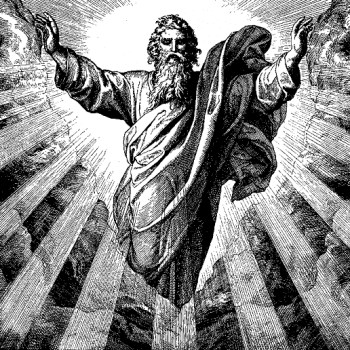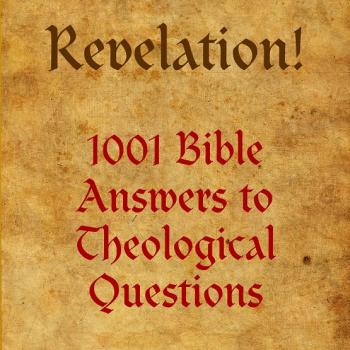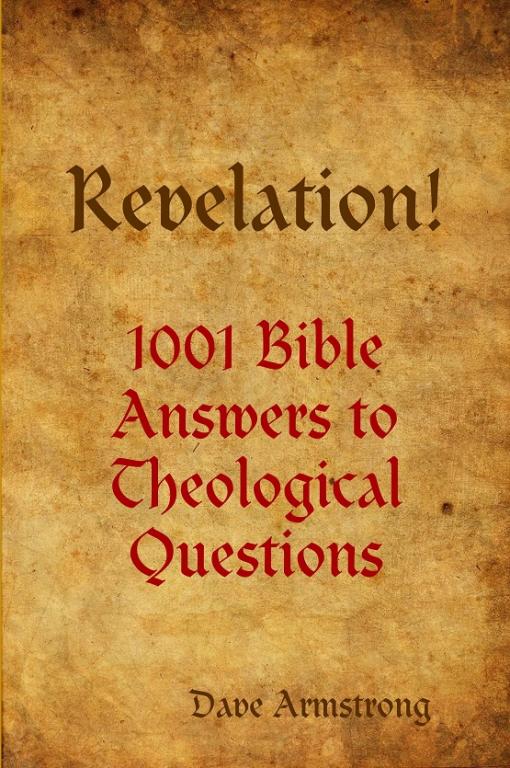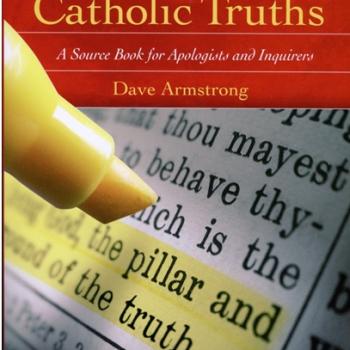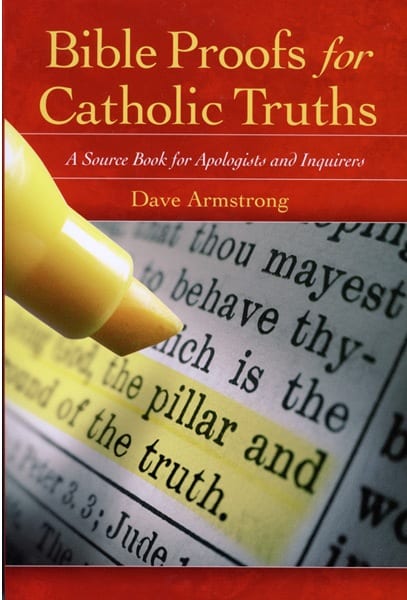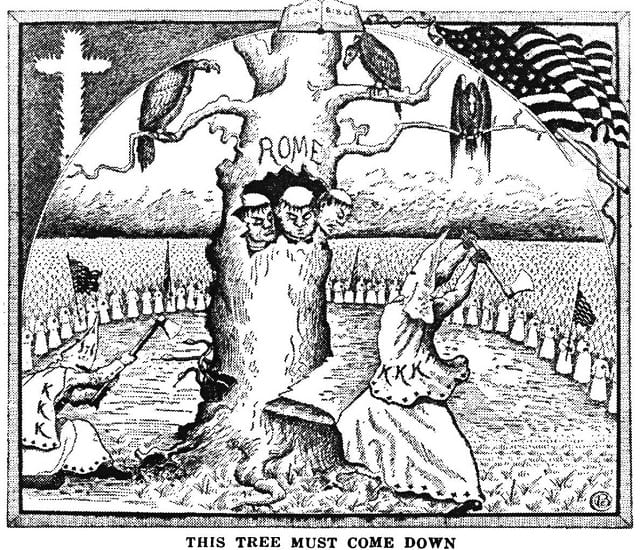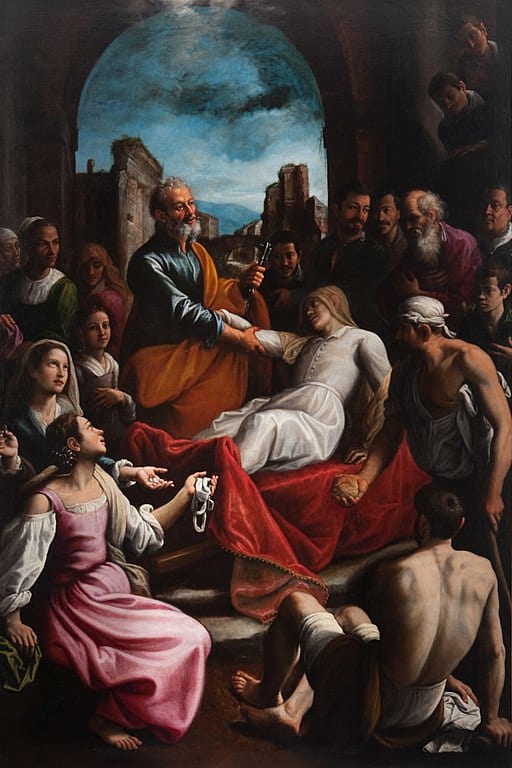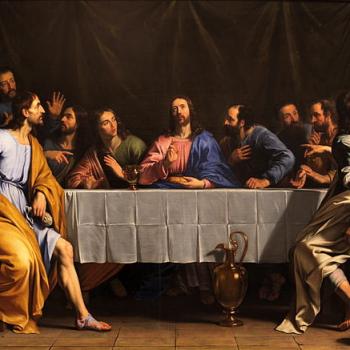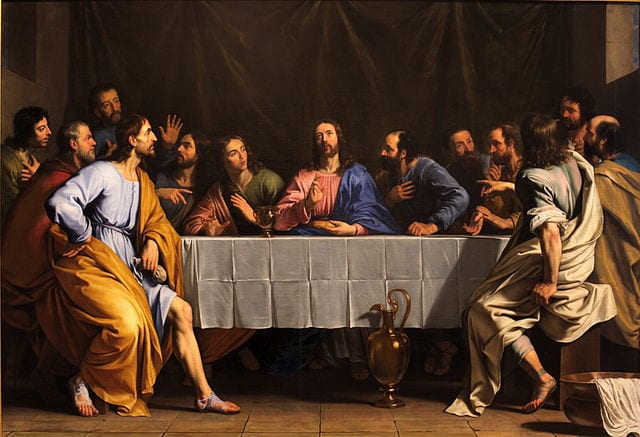Biblical Refutation of “Hyperfaith” / “Name-It-Claim-It” Teaching
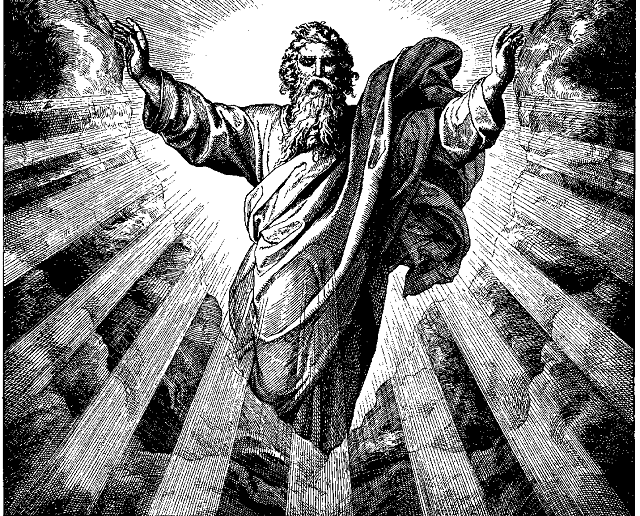
[Bible verses: New American Standard Bible (NASB) unless otherwise indicated]
* * * * *
1) Jesus: Illness Not Necessarily Due to Sin
John 9:2-3 His disciples asked Him, saying, “Rabbi, who sinned, this man or his parents, that he should be born blind?” Jesus answered “It was neither that this man sinned, nor his parents, but it was in order that the works of God might be displayed in him.”
2) Enduring Sickness and God Smiting With Disease
Proverbs 18:14 The spirit of a man can endure his sickness.
Why endure if God intended for us never to be sick? The Hebrew is machaleh, defined by Strong’s Concordance as “sickness, disease, infirmity” (word 4245), and by Gesenius’ Lexicon as “disease” also (word 4245). It occurs in 2 Chronicles 21:15, 18: “and you will suffer sickness, a disease of your bowels, until your bowels come out because of the sickness, day by day . . . So after all this the LORD smote him in his bowels with an incurable sickness.”
Here God gives a man a disease, which isn’t supposed to happen, according to this false teaching; only the devil is supposed to do that. But God is Judge: he can certainly give an illness to someone, just as He can kill them, if He should so choose, as He is our Creator, and life and death is in His hands.
3) The Apostle Paul Recommends Wine Instead of Healing
1 Timothy 5:23 Use a little wine for the sake of your stomach and frequent ailments.
Why didn’t Paul heal Timothy, or tell him he must be in sin, or that he lacks faith for healing?
4) No biblical passage teaches that Christians should never have illness.
5) Apostle Paul Again Unable to Heal
2 Timothy 4:20 Trophimus I left sick at Miletus.
Why couldn’t Paul heal Trophimus (or Timothy) if Jesus said His disciples would have the power to heal? Two reasons. There is a limitation on our powers, and God sometimes chooses not to heal, for reasons above our understanding.
6) No Death?
Consistent, so-called “faith” doctrine would mean that followers would never have to die! The person with enough “faith” could theoretically heal himself indefinitely. Yet, we know that this is obviously absurd. Everyone dies; and most people have some sickness from which they will die. Thus, for most people, there is one sickness of which they will never be healed — their last one. Death and sickness came about in the first place as a result of the fall. God decides ultimately when someone dies, and He decides whether to heal or not. But perfect health will not be achieved until the Kingdom arrives.
7) Prophet Daniel’s Lack of “Faith”
Daniel 8:27 Then I, Daniel, was exhausted and sick for days . . .
Another example of a saint without enough faith to be healed.
8) Prophet Elisha Also Succumbs to Faithlessness?
2 Kings 13:14 Elisha became sick with the illness of which he was to die.
This destroys the notion of the righteous (Elisha was God’s prophet) always dying of old age.
Exodus 4:11 And the Lord said to him, “who has made man’s mouth? Or who makes him dumb or deaf, or seeing or blind? Is it not I, the Lord?”
This verse simply should not exist if “faith” teachers are correct. They say that Satan produces all physical abnormalities, and that God wills for no one to have these defects. The above verse renders this belief biblically absurd and false.
10) Aging
Aging is itself a degenerative disease which is irreversible, constantly occurring and ultimately fatal. This is a medical and scientific fact, and one which contradicts the “faith” doctrine, which teaches attainable perfect health. Such a state is not possible for fallen man and fallen creation.
11) Mentioning False Teachers by Name
This finds biblical sanction in Paul’s writings. In 1 Timothy 1:20, he mentions Hymenaeus and Alexander in an unfavorable light. In 2 Timothy 2:17-18, he names Hymenaeus and Philetus, “men who have gone astray from the truth” . . . And in 2 Timothy 4:14, he writes, “Alexander the coppersmith did me much harm; the Lord will repay him according to his deeds.” Thus, one can rightly name false teachers such as Kenneth Hagin and Kenneth Copeland, for the sake of orthodoxy and true doctrine, and to prevent injury to souls.
12) Church History
No key figure in the history of the Church and Christianity has ever taught freedom from all disease as a result of the atonement, God being “bound,” our positive confession, etc.
13) Relation of Healing to Faith
We find that healing is sometimes related to faith and sometimes not, in the NT. Many scriptures can be found where Jesus says “Your faith has made you well” or some other similar phrase. But other passages don’t mention faith at all. Thus we cannot establish an absolute relation between faith and healing (or, conversely, a correlation between sin and sickness). These beliefs are not biblical, and are constructed by illogically reading into Holy Scripture what is not there. Let’s examine a few passages in this regard.
In Matthew 8:13, the centurion’s servant was healed with no mention of his faith whatsoever. Now, if one believes that the centurion’s faith brought about the healing and goes on to set up an ironclad rule or principle that faithful people can heal others with perhaps little or no faith, then Paul’s difficulty with Timothy and Trophimus needs to be explained (see numbers 3 and 5 above).
This is a strange dilemma indeed! In order to salvage the false doctrine, one is forced to conclude that Paul lacked adequate faith. In Matthew 8:14-15, Peter’s mother-in-law is healed with no mention of faith. When Jesus healed whole crowds of sick and disabled people, are we to believe that every single one of them had faith? Matthew 9:25: Jesus raises a girl from the dead (obviously it wasn’t her faith). Matthew 12:13: a man with a withered hand is healed, with no mention of faith. John 11:43-44: Lazarus is raised from the dead (clearly his faith had nothing to do with it, either). Numerous other examples could be cited.
14) Our Prayers and God’s Will
1 John 5:14 If we ask anything according to His will, he hears us.
1 John 3:22 and whatever we ask we receive from Him, because we keep His commandments and do the things that are pleasing in His sight.
James 4:3 You ask and do not receive, because you ask with wrong motives, so that you may spend it on your pleasures.
We see, then, that our prayers are qualified by God’s will. He is sovereign; He knows what’s best for us. We cannot have whatever we ask, with no limitation. That is obviously not what verses saying “whatsoever you ask” mean. I cannot ask God to let me murder someone, because this is not His will. Therefore, we should pray whether a healing is in God’s will or not. It isn’t always His will: as has been shown above, and will be further substantiated below. Unlimited positive confession would lead to unmitigated personal selfishness. Thank God that He often refuses us!
15) St. Paul Can’t Heal One More Time! (Seems to be a Pattern)
Philippians 2:25-27 I thought it necessary to send to you Epaphroditus, my brother and fellow-worker and fellow-soldier . . . because he was longing for you all and was distressed because you had heard that he was sick. For indeed he was sick to the point of death, but God had mercy on him, and not on him only but also on me, lest I should have sorrow upon sorrow.
Paul again is unable to heal one of his associates. Why?
16) St. Paul’s Sufferings and Example for Us
Colossians 1:24 I rejoice in my sufferings for your sake, and in my flesh I do my share on behalf of His body (which is the church) in filling up that which is lacking in Christ’s afflictions.
The Greek for “afflictions” is thlipsis, which Strong’s Concordance (word 2347) defines as “pressure (literal or figurative).” W.E. Vine’s Expository Dictionary states under “affliction-thlipsis” for Colossians 1:24, “Afflictions of Christ from which his followers must not shrink, whether sufferings of body or mind.” Thayer’s Greek-English Lexicon of the NT reiterates the same thing (p. 291 — word 2347). The same word is used referring to the distress of a woman in childbirth in John 16:21.
Paul’s mention of “flesh” would seem to indicate he is referring to physical distress. The Greek for “flesh” is “sarx”, and concerning its use in this verse, Thayer’s Greek-English Lexicon states, “the physical nature of man as subject to suffering” (word 456, p. 570). As a cross-reference, 1 Peter 4:1 is cited: “Therefore, since Christ has suffered in the flesh, arm yourselves also with the same purpose, because he who has suffered in the flesh has ceased from sin.” Such physical suffering as part of God’s will is a constant theme in Paul’s writings:
2 Corinthians 4:10 (RSV) Always carrying in the body the death of Jesus, so that the life of Jesus may also be manifested in our bodies.
2 Corinthians 1:5-7 . . . the sufferings of Christ are ours in abundance . . . if we are afflicted, it is for your comfort and salvation . . . patient enduring of the same sufferings which we also suffer . . . as you are sharers of our sufferings, so also you are sharers of our comfort.
Philippians 2:17 (RSV) Even if I am to be poured out as a libation upon the sacrificial offering of your faith, I am glad and rejoice with you all (cf. 2 Cor 6:4-10, 11:23-30).
Philippians 3:10 That I may know Him, and the power of His resurrection and the fellowship of His sufferings, being conformed to His death. (cf. Gal 2:20).
The Greek word for “fellowship” is koinonia, which means (as in the familiar usage), “participation, or sharing in something” (word 2842 – Strong and Thayer).
2 Timothy 4:6 (RSV) For I am already on the point of being sacrificed; the time of my departure has come (cf. Romans 12:1).
In 2 Timothy 4:6 and in Philippians 2:17, the Greek word for libation and sacrifice is spendomai. In the Septuagint, the Greek translation of the Old Testament which was the Bible of the early Christians, this term is used with reference to the Messiah, Jesus, in Isaiah 53:12 (RSV) “. . . he poured out his soul to death . . .” It appears, then, that St. Paul is stressing a mystical, profound identification with Jesus even in His death — as also in 2 Corinthians 4:10 and Philippians 3:10 above, and Galatians 6:17: “. . . I bear on my body the brand-marks of Jesus.”
The “faith” teacher rather desperately retorts that this suffering was God’s will only for Paul and (especially) Jesus. Apart from the fact that this notion is clearly refuted already in the verses directly above and in #17 below, Paul himself directly contradicts it by urging us to imitate him, and in turn, imitate Christ (Whom he is imitating):
Philippians 3:17 Brethren, join in following my example, and observe those who walk according to the pattern you have in us.
The word for “following” is summimetes, which means “co-imitator” (Strong’s, Thayer, and Vine).
2 Thessalonians 3:7, 9 . . . you ought to follow our example . . . [we] offer ourselves as a model for you, that you might follow our example.
1 Corinthians 11:1 Be imitators of me, just as I also am of Christ.
1 Thessalonians 1:6 You also became imitators of us and of the Lord, having received the word with much tribulation with the joy of the Holy Spirit (cf. Heb 6:12, James 5:10-11).
Galatians 4:12 I beg of you brethren, become as I am.
Philippians 4:9 The things you-have learned end received and heard and seen, practice these things; and the God of peace shall be with you.
1 Corinthians 4:11-16 To this present hour we are both hungry and thirsty, and are poorly clothed, and are roughly treated, and are homeless; and we toil, working with our own hands; when we are reviled, we bless; when we are persecuted, we endure; when we are slandered, we try to conciliate; we have become as the scum of the world, the dregs of all things, even until now. I do not write these things to shame you, but to admonish you as my beloved children. For if you were to have countless tutors in Christ, yet you would not have many fathers; for in Christ Jesus I became your father through the gospel. I exhort you therefore, be imitators of me.
2 Timothy 1:8 Join with me in suffering for the gospel according to the power of God.
2 Timothy 2:3 Suffer hardship with me, as a good soldier of Christ Jesus.
The Greek word for “imitator” here is mimetes (usually “follower” in KJV). Greek scholar W. E. Vine stresses that the tense of the verb in many instances of this word, is a continuous tense, meaning that “what we became at conversion we must diligently continue to be thereafter.”
17) Suffering (including sickness) is God’s Will for the Christian
Matthew 10:38 (RSV) And he who does not take his cross and follow me is not worthy of me.
Matthew 16:24 (RSV) Then Jesus told his disciples, “If any man would come after me, let him deny himself and take up his cross and follow me” (cf. Mark 8:34-35).
The disciple of Christ is called to suffer (Matthew 10:22, Mark 10:37-39, Luke 6:22, Acts 14:22, Romans 5:3-5, 2 Corinthians 12:7-10, Philippians 1:29, 1 Thessalonians 3:3, 2 Timothy 1:8, 2:3, 3:12, Hebrews 5:8, James 1:2-4,12, 1 Peter 1:6-7, 2:20-21, 4:12-19, Revelation 1:9). No biblically-informed Christian would dispute that. Controversy only arises over whether such sufferings can improve one’s estate vis-a-vis salvation, or help anyone else in the Body of Christ (see, e.g., Romans 15:1 and 1 Corinthians 12:24-26).
Romans 8:13, 17 (RSV) For if you live according to the flesh you will die, but if by the Spirit you put to death the deeds of the body you will live . . . and if children, then heirs, heirs of God and fellow heirs with Christ, provided we suffer with him in order that we may also be glorified with him (cf. 1 Corinthians 15:31, 2 Corinthians 6:9, 1 Peter 4:1,13).
Furthermore, the Bible often stresses the painful experience of being corrected by God, as parents discipline their children (Leviticus 26:23-24, Deuteronomy 8:2, 5, 2 Samuel 7:14, Job 5:17-18, Psalm 89:30-34, 94:12, 103:9, 118:18, 119:67,71,75, Proverbs 3:11-12, Isaiah 48:10, Jeremiah 10:24, 30:11, 31:18, Zechariah 13:9, Malachi 3:3, 1 Corinthians 11:32, Hebrews 12:5-11, Revelation 3:19).
18) Chronically Ill Apostle Paul
2 Corinthians 1:8-10 . . . our affliction which came to us in Asia, that we were burdened excessively, beyond our strength, so that we despaired even of life, indeed, we had the sentence of death within ourselves in order that we should not trust in ourselves, but in God who raises the dead, who delivered us from so great a peril of death.
The Greek for “affliction” is thlipsis, discussed in #16. Whether the meaning here is physical or not is debatable, but either way, the “faith” teachers would have a difficult time fitting this passage into their doctrine, which maintains that “good” Christians (i.e., faithful and righteous ones, according to their warped definition of what “faith” is) don’t have afflictions of any sort.
19) St. Paul’s “Illness” or “Condition”
Galatians 4:12-14 I beg of you, brethren, become as I am, for I also have become as you are. You know that it was because of a bodily illness that I preached the gospel to you the first time, and that which was a trial to you in my bodily condition you did not despise or loathe, but you received me as an angel of God, as Christ Jesus Himself.
The Greek for “bodily illness” is astheneia: Strong’s Concordance (word 769) defines it as “feebleness (of body or mind): by implication, malady, frailty, disease, infirmity, sickness, weakness.” As for its use in this passage, Thayer’s Greek-English Lexicon: “feebleness of health, sickness” (word 769, p. 80). And indeed that meaning is quite abvious in all English translations. Here are some of these and their translations of both bolded phrases (20 total):
KJV / Wuest “infirmity of the flesh”
NIV / Moffatt / Williams “illness . . . illness”
RSV “bodily ailment . . . condition”
TEV (GNB) “sick . . . physical condition”
NEB “bodily illness . . . state of my poor body”
Phillips “physical illness . . . disease”
Living Bible “sick . . . sickness”
Jerusalem “illness . . . disease”
MLB “physical infirmity . . . physical condition”
Amplified “bodily ailment . . . physical condition”
New American Bible “bodily ailment . . . physical condition”
Barclay “illness . . . physical illness”
NKJV “physical infirmity”
Beck “sick . . . sick body”
NRSV “physical infirmity . . . condition”
REB “bodily illness . . . pjysical condition”
CEV “sick . . . illness”
Thus, Paul’s condition is beyond dispute. Its impossible to say his problem was not physical. Of course, the implication of all this is that Paul (again) could not heal himself. Yet his sickness didn’t hinder him from preaching the gospel. If we are supposed to “live above sickness,” then we have more faith than Paul, and perhaps should rewrite his books since we know so much more than he did.
Most “faith” churches would turn Paul from their door, reviling him for his lack of faith and appearance. There is some dispute as to the exact nature of Paul’s infirmity, but virtually all conservative biblical scholars agree that he suffered from some physical condition (and chronic at that). Let’s look at a sampling:
i) New Bible Commentary: either a recurrent illness (2 Cor 12:7) or a weakening disability, or malaria (Acts 13:13).
ii) New Catholic Commentary: possibly malaria; possible connection to Acts 13:13.iii) New Layman’s Bible Commentary: some ailment.
iv) Matthew Henry’s Commentary: some infirmity.
v) Peake’s Commentary: connected with 2 Cor 12:7-10; possibly malaria, or eye disease.
vi) Pulpit Commentary: chronic sharp physical distress (2 Cor 12).
vii) Barne’s Notes: some bodily infimity (2 Cor 12).
viii) Interpretation of St. Paul’s Epistles: R.C.H. Lenski: illness, possibly malaria.
ix) Ramsay: malaria with severe headaches.
x) Daily Study Bible Series, William Barclay: likely malaria with severe headaches, same as 2 Cor 12.
xi) Tyndale NT Commentaries, Galatians (Alan Cole): “Paul was constantly plagued by ill health . . . Most scholars have taken ‘trial’ (v. 15) as being synonymous with Paul’s ‘thorn in the flesh’.”
xii) Zondervan Commentary, Galatians: J.B. Lightfoot: bodily ailment of some sort.
xiii) Expository Messages on Galatians, H.A. Ironside: “Paul was used of God to heal many sick people, but he never healed himself . . . He was a sick man for years as he preached the gospel.” Probably an affliction of the eyes.
xiv) The Gospel in Galatians, C. Norman Bartlett: Either ophthalmia or malaria. “It was probably the thorn in the flesh alluded to in 2 Cor 12.”
xv) Jamieson, Fausset and Brown Commentary: Some bodily sickness. Probably the same as his “thorn in the flesh” (2 Cor 12).
xvi) Word Studies in the New Testament, Marvin R. Vincent: “Paul, in his first journey, was compelled by sickness to remain in Galatia . . . bodily infirmity.”
xvii) Word Pictures in the New Testament, A.T. Robertson: “. . . sickness of some kind whether it was eye trouble (4:15) which was a trial to them or . . . the thorn in the flesh (II Cor. 12:7) we do not know . . . illness and repulsive appearance . . . “
Note how many of these commentators connect this sickness with Paul’s “thorn in the flesh.” We will consider this passage next and seek the most reasonable interpretation of it.
20) St. Paul’s “Thorn in the Flesh”
2 Corinthians 12:7-10 To keep me from exalting myself, there was given me a thorn in the flesh, a messenger of Satan to buffet me – to keep me from exalting myself! Concerning this, I entrusted the Lord three times that it might depart from me and He said, “My grace is sufficient for you, for power is perfected in weakness.” Most gladly, therefore, I am will rather boast about my weaknesses, that the power of Christ may dwell in me. Therefore, I am well content with weaknesses, insults, distresses, persecutions, with difficulties,for Christ’s sake, for when I am weak, then I am strong.
Lets look at the original Greek and try to determine exactly what Paul is teaching. The word for “thorn” is skolops, and this is the only time it is used in the NT. Concerning it, Thayer’s Greek-English Lexicon states. “a pointed piece of wood, a pale, a stake; appears to indicate some constant bodily ailment or infirmity, which, even when Paul had been caught up in a trance to the third heaven, sternly admonished him that he still dwelt in a frail and mortal body” (word 4647, p. 579).
Vine’s Expository Dictionary states. “His language indicates that it was physical, painful, humiliating; it was also the effect of Divinely permitted Satanic antagonism; the verbs rendered “that I should (not) be exalted overmuch” and ‘to buffet’ are in the present tense, signifying recurrent action. Indicating a constantly repeated attack . . . What is stressed is not the metaphorical size, but acuteness of the suffering and its effects.” (see #2).
Furthermore, the “flesh” (Gk. sarx) is said to refer to the physical body in this context, according to Thayer: “The body . . . signifying the material or substance of the living body . . . 2 Cor 12:7″ (word 4561, p. 570). A.T. Robertson, in his Word Pictures in the New Testament, writes: “Certainly it was some physical malady that persisted.
All sorts of theories are held (malaria, eye-trouble, epilepsy, insomnia, migraine or sick-headache, etc.) . . . Each of us has some such splinter or thorn in the flesh, perhaps several at once . . . The messenger of Satan kept slapping Paul in the face and Paul now sees that it was God’s will for it to be so.” Marvin R. Vincent (Word Studies in the New Testament) concurs: “It was probably a bodily malady . . . Very plausible reasons are given in favor of both epilepsy and ophthalmia.”
The Greek word translated “weakness” three times is astheneia (see #19). Vine mentions the use of this Greek term in this passage, and defines its meaning as “weakness of the body . . . (2 Cor 12:4-10)” (listed under “Weakness”). It may be argued that Paul’s use of the word here is in a larger sense (i.e., taking in non-physical weakness also).
But it is quite often used in an obviously physical sense elsewhere in Scripture. Since “thorn in the flesh” (especially after examining the Greek) would appear to be a graphic description of physical pain, it is very likely that “weakness” includes physical suffering. Also, the equation of power with weakness in verses 9 and 10 would make more sense if the “weakness” was physical. Let’s look at some other uses of astheneia in Scripture:
Luke 1:11 A woman had a sickness caused by a spirit and she was bent double and could not straighten up at all.
John 5:5 A man who had been thirty-eight years in his sickness (vs. 8-9 indicate that he couldn’t
walk).Luke 5:15 Great multitudes were . . . healed of their sicknesses.
Luke 8:2 Some women-who had been healed of evil spirits and sicknesses.
John 11:4 This sickness . . . (referring to Lazarus’ sickness).
Acts 28:9 The people who had diseases were coming to him and getting cured.
Luke 10:9 . . . heal those . . . who are sick . . .
Matthew 10:8 Heal the sick . . .
Matthew 6:2 . . . those who were sick.
Also, a closely related word, astheneo, from the same root, is very often used in Scripture referring to obviously physical infirmities. In John 5:3 it is translated in various Bible versions as “sick,” “impotent,” “invalids,” disabled,” “ailing,” or “infirm” (see also Mt 10:8, 25:36, Mk 6:56, John 4:46, 5:7, 6:2, 11:1-3,6, Acts 9:37, Phil 2:26-27, 2 Tim 4:20, James 5:14). A third related word, asthenes, is used in a physical sense in Mt 25:31, 43:44, Lk 10:9, Acts 4:9, 5:15-16.
Finally with regard to Paul’s “thorn,” we have the consensus of the overwhelming majority of conservative biblical scholars that it was some physical disease. Although they may disagree on the exact nature of the infirmity, there is a consensus that it was a physical infirmity:
i) New Bible Commentary: possibly malaria.
ii) New Laymans Bible Commentary: most probably ophthalmia or malaria. Possible connection to Gal 4:13-15, 6:11, Acts 13:3 and 23:5.
iii) Barne’s Notes: “Some infirmity of the flesh, some bodily affliction or calamity.” Connection to Gal 4:13-15.
iv) New Catholic Commentary: possibly a “chronic humiliating malady,” such as marsh fever (connection with 2 Cor 1:8 ff. and Gal 4:13-14).
v) Corinthian Letters of St. Paul, G. Campbell Morgan: Some type of physical affliction, for
sure.
vi) Daily Study Bible, 1 & 2 Corinthians, William Barclay: chronic attacks of a certain virulent malarial fever which was common in the eastern Mediterranean area. “By far the most likely thing.”
vii) Interpretation of 1 & 2 Corinthians, R.C.H. Lenski: some physical infirmity.
viii) Jamieson, Fausset and Brown Commentary: some affliction causing acute pain (as “thorn” implies). Connection with Gal 4:13-14.
ix) Ramsay: recurring malarial fever.
x) Zondervan Pictorial Bible Dictionary: Some physical ailment, which was painful and disfiguring; possibly ophthalmia.
The implications of all this for the “faith” adherent are (as is always the case with occurrence of disease in Scripture), are obvious: why couldn’t Paul heal himself if he could heal others (but not always: see #’s 3, 5 and 15)? The answer is obvious and occurs right in the passage. God didn’t will to heal him (“My grace is sufficient for you, for power is perfected in weakness”).
We have seen how the Greek word for “weakness, which God uses here, is used in Scripture and the overwhelming evidence is that Paul suffered from disease, with God’s approval. This destroys one of the “faith” doctrine’s chief beliefs: namely, that it is always God’s will to heal at all times.
21) The Case Of Job
The book of Job, rightly understood and interpreted, reads almost like a parable of the “faith movement”, and its refutation, for we find much here that cannot be explained by “faith” proponents. Some of the worst arguments in the “faith” literature are put forth in attempts to explain away Job and his sufferings. Lets look at some key verses of Job:
In verse 1:1, Job is described as “blameless, upright, fearing God, and turning away from evil.” In verse 1:8, the Lord Himself repeats these same words, in conversation with Satan, adding the phrase, “there is no one like him on the Earth.” After Job is afflicted with all the calamities described in 1:13-22, God still says the same thing about him that He said in 1:8, in verse 2:3 (adding, “And he still holds fast his integrity”). Note how God says in the same verse, “You incited me against him, to ruin him without cause.”
This is very important, because faith teachers would have us believe that Satan was solely responsible for Job’s troubles, while the Bible, on the other hand, tells us explicitly that God afflicted Job, using Satan as His agent (i.e., allowing him to do evil to Job). Note also, how God proclaims that even though Satan cited Him against Job, there was no cause for it. This wasn’t allowed to come upon Job because of some secret sin, or lack of faith, etc.
In this vein, Job 42:11 is quite instructive: “. . . all the evil that the Lord had brought on him.” What are “faith” teachers to do with this verse, and also Job 2:3? Thus, two false doctrines are exposed. “Faith” teachers tell us that the righteous should not suffer and be afflicted physically, and that Satan is the author of all diseases, which afflict believers only through lack of faith. Thus, they attribute Job’s problems to lack of faith, secret sin, and allowing Satan to “get in.” But the Bible tells us otherwise. Job was righteous because God said so (1:8 and 2:3) in no uncertain terms.
And his afflictions (both bodily and otherwise) were ultimately caused by God (Job 2:3 and 42:11. See also Exodus 4:11, under #9). They were God’s will. There is no indication that Job’s sufferings were a result of his shortcomings or lack of faith. That is pure speculative desperation on the “faith” teachers part, with no biblical basis. James even commends Job for his endurance (James 5:11; see also #28). This is strange indeed if we are to regard Job as an example of a lack of faith!
Job shows his understanding of God’s ways in verse 2:10: “Shall we indeed accept good from God and not accept adversity?” Now we will look at Job’s ‘comforters.’ We will see how they asserted that the righteous do not suffer, and that therefore, Job must have some sin which is causing his problems. They are exactly, uncannily, like “faith” followers today, who exude a decided lack of compassion toward the suffering because they regard them as second-class spiritual citizens (this is the strong tendency anyway, and the logical outcome of the doctrine).
But we will also see how God severely rebukes these “friends” at the end of the book, and asserts His sovereignty (i.e., “trust Me even though you may not understand some things such as adversity befalling the righteous.”).
Bildad says in verse 8:6: “If you are pure and upright, surely now He would rouse Himself for you and restore your righteous estate,” implying that Job was not righteous because God didn’t move immediately. Job, however, although the most righteous man on the earth, recognizes mans inherently sinful nature by saying: “How can a man be in the right before God?” (9:2). He is arguing that since no man is righteous, God’s dealings with men are based totally on His mercy, and not our supposed faith or righteousness.
The hyperfaith doctrine tends to make the Christian walk depend far more on our power and knowledge than on God’s mercy, sovereignty, and grace. Job’s comforters continue to make insinuations about Job’s supposed great sinfulness as the book goes on, getting worse as they go. “Is not your wickedness great, and your iniquities without end?” (22:5) And so it goes throughout the book.
Of course we know that these “friends” are dead wrong, because of God’s proclamations of Job’s righteousness at the beginning of the book, and His responses to them at the end of the book. Lets look now at God’s opinion of the discourse which is documented in the book of Job. “My wrath is kindled against you and against your two friends, because you have not spoken of me what is right as my servant Job has” (42:7). In verse 42:8, God refers to the friends’ “folly”.
God tells the three “comforters” that Job will pray for them after they offer up burnt offerings, thus vindicating Job and severely rebuking his self-righteous, supposedly “wise” friends. We find in conclusion, then, that the whole of the book of Job is contrary to the “faith” doctrine, and fatally destroys it. Many other biblical verses teach the same thing about God’s relation to evil and affliction:
Exodus 15:26 And He said, “If you will give earnest heed to the voice of the LORD your God, and do what is right in His sight, and give ear to His commandments, and keep all His statutes, I will put none of the diseases on you which I have put on the Egyptians; for I, the LORD, am your healer.”
Leviticus 26:15-16 if, instead, you reject My statutes, and if your soul abhors My ordinances so as not to carry out all My commandments, and so break My covenant, I, in turn, will do this to you: I will appoint over you a sudden terror, consumption and fever that shall waste away the eyes and cause the soul to pine away; also, you shall sow your seed uselessly, for your enemies shall eat it up.
Deuteronomy 7:15 And the LORD will remove from you all sickness . . . He will lay them on all who hate you.
Deuteronomy 28:61 Also every sickness and every plague which, not written in the book of this law, the LORD will bring on you until you are destroyed.
Judges 9:23 Then God sent an evil spirit between Abimelech and the men of Schechem; and the men of Schechem dealt treacherously with Abimelech. (cf. Isaiah 19:1-4)
1 Samuel 16:14, 23 Now the Spirit of the LORD departed from Saul, and an evil spirit from the LORD terrorized him . . . the evil spirit from God came to Saul . . .
1 Samuel 18:10-11 . . . an evil spirit from God came mightily upon Saul, and he raved in the midst of the house, while David was playing the harp with his hand, as usual; and a spear was in Saul’s hand. And Saul hurled the spear for he thought, “I will pin David to the wall.” . . . (cf. 19:9-10: “evil spirit from the LORD”)
22) Jesus and the “Curse of the Law”
Galatians 3:13 Christ redeemed us from the curse of the Law, having become a curse for us, for it is written, “Cursed is everyone who hangs on a tree.”
“Faith” teachers tell us that the “curse” referred to here is the curse of physical disease, but the context, and the examination of similar Pauline teachings elsewhere point to other conclusions. The whole context of Galatians 3:13 (all of chapter 3) is concerned with faith leading to righteousness, rather than works of the Law. Paul actually defines the “curse” being spoken of, in verse 3:10: “For as many as are of the works of the Law are under a curse; for it is written – ‘Cursed is every one who does not abide by all things written in the book of the law, to perform them.’”
He goes on to assert, in verse 11, that no one is justified by the law. Thus, the curse of the Law is the fact that no one could ever get to heaven by means of it. Physical infirmities are nowhere spoken of. We are redeemed from hell by the work of Christ on the cross, as the profound statement of Galatians 3:13 tells us (see also Rom 7:6 and 8:1-3).
“Faith” teachers cross-reference Galatians 3:13 with Deuteronomy 28:15 ff. and tell us that Jesus Christ took upon Himself all the curses described there (so that we would never have them again). Beyond the considerations examined in #16, a simple examination of Deuteronomy 28 quickly reveals that this belief is totally absurd: The passage is a warning directed against the Jews alone. It doesn’t even apply to Gentiles!
But even if we did grant that the “curse” might apply to believers today, and that Christ took upon Himself all the curses mentioned, let’s follow this logic for the sake of argument and see what happens: Christ bore our mildew (v. 22), our droughts (v. 24), our battles (v. 25), our madness (v. 28), our adultery (v. 30), our bad crops (v. 39), our being scattered among all peoples (obviously referring to the Jews alone — v. 64), etc., etc.
There is no connection between Galatians 3:13 and Deuteronomy 28, and nothing in Galatians 3 to make us believe that we would be delivered from physical disease. Disease cannot cease yet, because we are still under the curse of the Fall. Thus, Paul says, “We ourselves grown within ourselves, waiting eagerly for our adoption as sons, the redemption of our body” (Rom 8:23) after speaking of the travail of all creation in the previous three verses.
This curse continues until the time of the New Heaven and Earth, because in Revelation 22:3, we are informed, “There shall no longer be any curse.” Pain and suffering will end at that time (Rev 21:4), not in the present age, as “faith” teachers would like to believe. For now, we are to suffer with Christ, rather than seek to avoid suffering in some ersatz notion of “faith”: 1 Peter 4:12-13: “Beloved, do not be surprised at the fiery ordeal among you, which comes upon you for your testing, as though some strange thing were happening to you, but to the degree that you share the sufferings of Christ, keep on rejoicing, so that also at the revelation or His glory, you may rejoice with exultation.”
23) Jesus Didn’t Heal Everybody All The Time
At the pool of Bethesda (John 5:1-9), John mentioned “a multitude of those who were sick, blind, lame, and withered” (v. 3). Yet when Jesus passed by, he only healed just one lame man (5:5-9). In Mark 1:32-34, we are informed that people “began bringing to Him all who were ill and those who were demon-possessed,” but it doesn’t say that all were healed; rather, “He healed many . . . and cast out many demons.” If Jesus wanted to heal absolutely everyone in the whole country, He could have easily done so, just as He healed the centurion’s servant at a distance (Mt 8:13).
All He had to do was say the word. And again, these healings are not (as far as we can determine from the text, at any rate) tied to faith, so that those who lacked faith did not get healed (as hyperfaith doctrine holds). So if folks like Kenneth Hagin and Kenneth Copeland are indeed gifted with the marvelous power to heal everyone, what in the world stops them from visiting every hospital in the world and clearing them out? After all, they think it is God’s will that no one should be sick, and that they have the power to heal by their own supposed extraordinary “faith.”
24) The Gift Of Healing
1 Corinthians 12:9 mentions the “gifts of healing,” among the listing of many spiritual gifts. Then 1 Corinthians 12:11 states, “one and the same Spirit works all these things, distributing to each one individually just as He wills.” Thus we see that healings are not earned by our faith (a doctrine of works, or the ancient heresy of Pelagianism), but rather, bestowed upon us by God as a gift, when and as He wills. This is distinctly different from having a divine “right” or “privilege” to be healed by God.
25) Is Healing Part of the Atonement (Isaiah 53)?
Isaiah 53:4-5 (4a and 5b) Surely our griefs (or, sicknesses) He bore, and our sorrows He carried . . . By His scourging we are healed.
As for Isaiah 53:5, the Hebrew word for “healed” is rapha. This word is by no means restricted to physical healing of our bodies. Here are some examples of its use in different senses:
2 Kings 2:21 I have purified these waters.
Jeremiah 51:9 We applied healing to Babylon.
Jeremiah 6:14 They have healed the wound of my people. (figurative)
Hosea 7:1 When I would heal Israel . . .
2 Chronicles 7:14 I will . . . heal their land.
2 Chronicles 30:20 The Lord heard Hezekiah and hea1ed the people. (used in the sense of “pardon” — see verses 18 and 19)
Jeremiah 3:22 I will heal your faithlessness.
Further uses of this word can be found with the aid of a concordance. Because the word can mean different things, it is essential to arrive at its meaning through context. We cannot lift it out of its surrounding passage, as if each verse (in this case, one-fourth of a verse) exists in a vacuum. And the context (53:5-6 in particular) is undeniably directed toward the atonement for sin, not toward a doctrine of physical healing per se. Verse 5 mentions our “transgressions, iniquities,” and “well-being” — all non-physical concepts.
Verse 6, right after the phrase in question reads, “All of us like sheep have gone astray,” and mentions our “iniquity” falling on Jesus. Verse 8 mentions our “transgression”, verse 11 mentions our justification and “iniquities,” and verse 12 (the last in the chapter) states, “He Himself bore the sin of many.”
Thus, since the whole passage concentrates on the atonement for sin, and since the word for “healed” can mean “pardon” or spiritual transformation, it is logical to interpret the phrase in question as “by His stripes we are saved.” This is more natural than forcing “heal” to be restricted to physical healing. In any case, there is no place for dogmatism on the part of “faith” teachers as to the meaning of rapha here. Furthermore, the chapter makes use of poetic synonymous parallelism.
For instance, Christ is compared to a “tender shoot” in verse 2, and to a “lamb” and a “sheep” in verse 7, while we are referred to as “sheep gone astray” in verse 6. Similarly, “healed” in this passage may simply be a poetic way of saying that our sins are forgiven (such as in 2 Chronicles 30:20 above). And the great Hebrew scholars agree that the meaning intended is indeed as I have argued. Gesenius’ Hebrew-Chaldee Lexicon, a standard reference source, notes concerning Isaiah 53:5: “There was healing to us, i.e. God pardoned us” (word 7495, p. 776).
Moreover, the “faith” exegesis of this passage flies in the face of other biblical admonitions to suffer along with Jesus: 1 Peter 2:21: “Christ also suffered for you, leaving you an example for you to follow in His steps.” Ephesians 5:1: “Be imitators of God.” The doctrine of Christ suffering so that we would not nave to is simply not biblical, as these verses demonstrate. The only thing we don’t have to go through as a result of Christ’s death for us is a life of despair on earth without God and an eternity in hell apart from Him.
26) New Testament Interpretation of the “Healing” of Isaiah 53
1 Peter 2:24 He Himself bore our sins in His body on the cross, that we might die to sin and live to righteousness, for by His wounds you were healed.
The Greek word for “healed” is iaomai, which, like its Hebrew counterpart, rapha, is not restricted to physical healing of the body in Scripture. For instance, both Matthew 13:15, John 12:40, and Acts 28:27 all quote from Isaiah 6:10. John reads, “He has blinded their eyes, and He hardened their hearts, lest they . . . be converted and I heal them.” Rapha is used for “heal” in Isaiah 6:10. And in all three of these NT quotations of that verse, iaomai is used.
Thus, it can mean spiritual transformation as well as physical healing, since the Isaiah passage is referring to a spiritual, not physical, change. Thayer’s Greek-English Lexicon states about these passages, as well as 1 Pet 2.24, “To make whole, i.e., — to free from errors and sins, to bring about one’s salvation” (word 2390, p. 296). W.E. Vine’s Expository Dictionary of New Testament Words agrees: “Figuratively, of spiritual healing . . . 1 Pet 2:24” (and the other three passages, listed under “Heal”, #2).
As for the context, we find, just as in Isaiah 53, that it is most surely dealing with salvation. The larger passage encourages believers to endure hardship and persecution. Verse 21 exhorts us to suffer like Christ, who is our example, while verses 19 and 20 commend those who patiently endure unjust suffering. If physical healing was referred to, it is in a strange place, since the the emphasis of the passage is not deliverance from trials, but the endurance of them.
The first part of 1 Peter 2:24 is quite obviously talking about Jesus bearing our sins, not our diseases. Note the connecting word “for.” And immediately after the phrase about healing, Peter mentions (like Isaiah) our straying like sheep, and our return to our “Shepherd” and “Guardian” of our souls. Again, since the whole surrounding context is indisputably concerned with salvation, and since the Greek word for “heal” is not restricted to a physical sense, it is much more reasonable to interpret the phrase as referring to salvation, and not to physical healing.
Even the tense (“you were healed”) makes more sense if it refers to salvation. since healing (even among “faith” proponents) is still taking place in the present. Why would Peter quote a phrase having to do with physical healing, if it had nothing to do with the rest of the passage he was writing? His use of the quote leads one to strongly believe that the original Hebrew in Isaiah was dealing with the solution for sin, not disease.
Greek scholar Gerhard Kittel, in his standard, highly-regarded work Theological Dictionary of the New Testament, takes the same view of the use of iaomai in these verses: “The figurative use . . . occurs in the NT only in OT quotations (except in Heb. 12:13). Thus the warning of Acts 28:27 quotes Is. 6:10 and 1 Peter quotes Is. 53:5. In both instances the reference is to restoration through forgiveness and the resultant saving benefits” (abridged, one-volume edition: p. 348).
27) Excesses and Harmful Logical Outcomes Of The Faith Doctrine
Many are the problems brought on by the unbiblical hyperfaith doctrine. We shall now examine how deadly and dangerous this false doctrine is (like all false teachings). If left unchecked, it will destroy the spiritual well-being of many in the Body of Christ. Therefore, it should concern Christians that such a doctrine is gaining ground and stifling the joyful lives of Christians. We must speak out with gentleness, love and forcefulness, lest more lives get caught in this clever web of deceptive teaching.
There are at least seven distinct dangers of this movement, all of which make perfect logical sense (a reductio ad absurdum) once one has accepted the teachings. All have already been manifested, and likely will increase in the days ahead unless we speak out now, with compassion and concern,
i) “Enough Faith” Paradox When physical healing is considered as part of the atonement right along with salvation, and both are attained through “mustering” enough faith, then we must logically assume that the one who “hasn’t got enough faith to be healed” (even a “faith” proponent, though they will deny it) must be in an overall lousy spiritual state and not right with God. This breeds an unhealthy and unethical judgmentalism, and on grounds which are themselves false and unbiblical.
ii) Disenchantment Inevitably, sooner or later, even the so-called “faith” follower will not be healed of something, because this is simply how God operates. He doesn’t always heal miraculously (in fact, He does so rarely). Now when this happens, the person may choose to blame God and fall away from the Lord, out of disenchantment (for the Christian walk didn’t turn out to be all peaches and cream, as they had been told). When this happens, those who taught him or her the false “faith” principles are directly responsible for that persons soul (and of course this is a very serious thing – not to be taken lightly — see James 3:1).
Or, the person may continue on in the Christian life, but with excessive self-condemnation. This person considers himself or herself a spiritual failure and second-class Christian because he or she couldn’t even have enough faith to receive what is supposedly every Christian’s right and privilege: perfect health at all times. This person will never have a victorious and joyful walk with the Lord until he or she is informed of the falsity of the “faith” doctrine. Then, liberation occurs because blame and guilt disappear.
iii) Spiritual Arrogance and Self-Righteousness Directly tied to the last problem is the one of spiritual arrogance. Those who have supposedly attained this wonderful “knowledge” of God’s principles, etc. (dangerously similar to the ancient heresy of Gnosticism) will inevitably look down on those who are having problems in their life, such as the theoretical person just mentioned. Thus, we will have a “distinction” between the “spiritual elite” (who “have it”) and the less fortunate who have not “arrived” yet (due, of course, we are told, to “secret sin” in every case).
Indeed, anyone who does not accept the “faith” teaching is looked down on, and, in extreme cases, despised. Such attitudes, are extremely disruptive of unity in the Body of Christ, in addition to being sinful and wrong in and of themselves. The more one stays in the “faith” movement, the more one tends to develop (or will be pressured to develop) a self-righteous, superiority complex much like that of the Pharisees. It all follows logically from the doctrine.
iv) Lack of Compassion For The Suffering Along with arrogance comes a related lack of compassion. Since blame must be attached to the person who isn’t “prosperous” and/or “healthy,” it is much easier to avoid having any concern, compassion or love for the suffering, than it would be if their suffering was seen not to be their fault. Thus, we witness heartbreaking scenes of those suffering (whether from cancer or emotional hurt or whatever) being accused coldly of “not having enough faith” rather than being consoled and comforted.
Surely the wrongness of this callousness is apparent. Aside from countless commands that we love one another, we are also told by God to “weep with those who weep.” “Faith” doctrine (logically) is diametrically opposed to that end, because it counters the action of love by always placing the blame on the sufferer.
Since time began, the poor, for instance, have always been considered lazy, sinful, or in some other way responsible for their condition, so that compassionate action to help them could be avoided and rationalized away. Now, the “faith” doctrine extends this cold unconcern to those who suffer in any way (financially, emotionally, spiritually, or physically).
I’m not claiming that all followers of the “prosperity” doctrine act this way (I know myself from firsthand experience that this is not true), just that such behavior is entirely consistent with and tends to flow in a diabolical consistent logic from the doctrine, since people are sinners and often succumb to judgmentalism and spiritual arrogance.
The follower of the “faith” movement may, for example, assist another follower (i.e. financially) while he is yet trying to mature into the teachings. The attitude remains that this is a necessary situation only because the newer or less mature follower hasn’t come to a real knowledge of “faith” yet. However, it is always thought that this will not be necessary when the less mature follower “grows” in the Lord and is able to rely on Him in all situations.
v) Self-Delusions One might wonder how a “faith” follower explains away his own disease, broken bone, infection, or any other abnormality. Incredible as it may seem, when such a problem strikes the faithful, he or she simply “claims” their God-given right to be healed, and maintains that the healing has occurred, whether or not the symptoms are present! I once met a girl who said her broken leg was healed even though she couldn’t walk normally across the room!
This type of ultra-irrational thinking is no different than a member of the Christian Science sect claiming that disease is nonexistent. Such behavior, however, laughable as it might be in many cases, could easily lead to tragedy. Envision a person who has fainting spells, for example, denying this, then driving a car, fainting, and killing a carload of people as a result; or a person with a heart condition denying that and over-exerting himself to the point of a fatal heart attack.
We need to condemn absolutely such delusion as this as extremely dangerous. Not only is it harmful to the person who believes it, but also possibly, to others as well, as we’ve seen. Then there is the aspect of “positive confession. versus negative confession — presumably where this delusion stems from, Because “faith” followers are taught that words can create realities, they are discouraged from saying anything negative.
This takes in emotional and spiritual elements as well as physical. Obviously the denial of all negative aspects in our lives will lead to lying, which, of course, can never be condoned if the Bible is to be followed seriously. Any doctrine leading to sin must be false.
Perhaps confessing sins to one another, or to a priest, or to God, is also a “negative confession” (following this mentality). Are we to go against the biblical command to confess sins? Of course, the more this unbiblical and arrogant, silly mindset manifests itself, the more the world will laugh at and dismiss Christians as utter fools (with good reason).
Perhaps this is one of the greatest tragedies, since Christians are called to be Christ’s ambassadors, and we are to reflect the nature of God. We need to show the world that Christianity is not self-delusion and self-righteousness, but rather, a balanced walk with Jesus, including difficult as well
as joyful times.
vi) Death Due To Ignorance The denial of the existence of a physical problem and/or the “certainty” of a healing, can cause, tragically, the unnecessary death of children. Everyone has read in the newspapers about parents “standing in faith” and refusing medication for their children, which, in some cases will lead to the death of a child. This is the ultimate tragedy of a perverted doctrine of faith and healing.
Whether the parents love the child or not (and they usually do, which is the irony), they, will be no less accountable for his or her death than someone who has an abortion. We are called to understand what the Bible teaches, and it does not teach a view of faith which can lead to such events as these.
vii) The Bondage Of Works-Legalism Nearly everything which is false in the “faith” doctrine is oriented towards a legalistic walk of works, in opposition to the biblical teaching of Grace Alone (which, by the way, Catholics adhere to as much as Protestants, over against the ancient heresy of Pelagianism). Healings and blessings are approached on the basis of how much faith we can generate of our own accord. If a person doesn’t live up to what he or she is “supposed to,” they condemn themselves, and are blamed, condemned, and looked down on by other “faith” proponents.
Thus, followers are in a bondage of trying to earn everything God gives to us, the same bondage which Jesus broke by dying for us, and enabling God to freely bestow blessings upon us according to His grace. If God didn’t heal someone, it wasn’t His will, and there is no reason to blame the person who wasn’t healed. Fear is produced in both the successful and unsuccessful followers. The prosperous fear they may fail to live up to prosperity standard in the future, and the unsuccessful fear the condemnation of the spiritual elite.
For the “faith” proponent, everything is black and white, and easily explained. If someone prospers, it’s because they have attained the secret knowledge, unlocked from its mysteriousness by Copeland and Hagin — they have earned it, while those who struggle are being penalized for their lack of faith and secret sin. How vastly different from the biblical picture of the Apostle Paul and a righteous man like Job! The Bible teaches that we’re all sinners and that all good things are undeserved gifts from God (see 1 Corinthians 4:6-8).
28) The Suffering of a Christian (Or, Bible Verses We Like To Forget)
Acts 5:41 They went on their way from the presence of the council, rejoicing that they had been considered worthy to suffer shame for His name.
Acts 14:22 Through many tribulations we must enter the kingdom of God.
The Greek for “tribulation” is thlipsis. See #16 & #18.
Romans 5:3-5 We also exult in our tribulations, knowing that tribulation brings about perseverance . . . proven character . . . hope, and hope does not disappoint . . .
Philippians 1:29 For to you it has been granted for Christ’s sake, not only to believe in Him, but also to suffer for His sake.
The Greek for “suffer” is pascho, and, concerning its appearance in this verse, Thayer’s Greek-English Lexicon states: “In a bad sense, of misfortunes, to suffer, to undergo evils, to be afflicted.” (word 3952, p. 494).
Philippians 3:8 I count all things to be loss in view of the surpassing value of knowing Christ Jesus my Lord, for whom I have suffered the loss of all things, and count them but rubbish in order that I may gain Christ.
1 Thessalonians 3:3 . . . so that no man may be disturbed by these afflictions for you yourselves know that we have been destined for this.
Hebrews 5:8 Although He was a Son, He learned obedience from the things which He suffered.
Hebrews 12:6, 11 For those whom the Lord loves He disciplines, and He scourges every son who He receives. All discipline for the moment seems not to be joyful, but sorrowful, yet to those who have been trained by it, afterwards it yields the peaceful fruit of righteousness.
James 1:2-4 Consider it all joy, my brethren, when you encounter various trials, knowing that the testing of your faith produces endurance. And let endurance have its perfect result, that you may be perfect and complete lacking nothing.
James 5:10-11 As an example, brethren, of suffering and patience, take the prophets who spoke in the name of the Lord. Behold, we count those blessed who endured. You have heard of the endurance of Job and have seen the outcome of the Lords dealings, that the Lord is full of compassion and is merciful.
2 Timothy 3:12 All who desire to live godly in Christ Jesus will be persecuted.
1 Peter 4:16, 19 If anyone suffers as a Christian, let him not feel ashamed, but in that name let him glorify God. Let those also who suffer according to the will of God entrust their souls to a faithful creator in doing what is right.
29) God’s Opinion of the Hyperfaith / “Name-it-and-Claim-it” Doctrine
1 Timothy 6:3-5 If anyone advocates a different doctrine, and does not agree with sound words, those of our Lord Jesus Christ, and with the doctrine leading to godliness, he is conceited and understands nothing, but he has a morbid interest in controversial questions and disputes about words, out of which arise envy, strife, abusive language, evil suspicions, and constant friction between men of depraved mind and deprived of the truth, who suppose that godliness is a means of gain.
2 Timothy 4:3-4 For the time will come when they will not endure sound doctrine, but wanting to have their ears tickled, they will accumulate for themselves teachers in accordance to their own desires; and will turn away their ears from the truth, and will turn aside to myths.
Romans 16:17-18 Keep your eye on those who cause dissensions and hindrances contrary to the teaching which you learned, and turn away from them. For such men are slaves not of our Lord Christ but of their own appetites, and by their smooth and flattering speech they deceive the hearts of the unsuspecting.
Ephesians 4:14 We are no longer to be children, tossed here and there by waves, and carried about by every wind of doctrine, by the trickery of men, by craftiness in deceitful scheming.
Colossians 2:4, 8 I say this in order that no one may delude you with persuasive argument . . . see to it that no one takes you captive through philosophy and empty deception, according to the tradition of men, according to the elementary principles of the world, rather than according to Christ. (cf. Titus 1:8-16, 1 Tim 4:11-15, and Gal 1:8)
30) Afterword
Although my application of the above Pauline condemnations to the so-called “faith” teaching may sound harsh and condemning, I do not wish to condemn individual persons, and this is not my intention. I do intend, however, to condemn the doctrine of which this paper is a refutation. God tells us to speak out against false doctrine, but not to condemn people. I can’t judge the hearts of anyone embroiled in this movement, and chances are my heart is as full of evil as theirs (Jeremiah 17:9). But I do strongly believe that the “faith” doctrine is false, and I’ve just given 30 major biblically saturated arguments (and numerous sub-arguments) against it.
And I absolutely believe in divine healing myself (I mention this because this accusation is almost always brought against any critic of the “faith” teaching), and I was healed of chronic depression in 1977. I believe in divine healing because 1) The Bible teaches it, and, 2) I’ve seen it many times. But God heals when and if He so desires. We have seen enough biblical evidence above to place that fact, and many other related facts, beyond dispute.
***
(originally written in 1982 and somewhat revised and expanded on 5 July 2002)
Photo credit: God the Father: woodcut by Julius Schnorr von Carolsfeld (1794-1872) [public domain / Wikimedia Commons]
***


